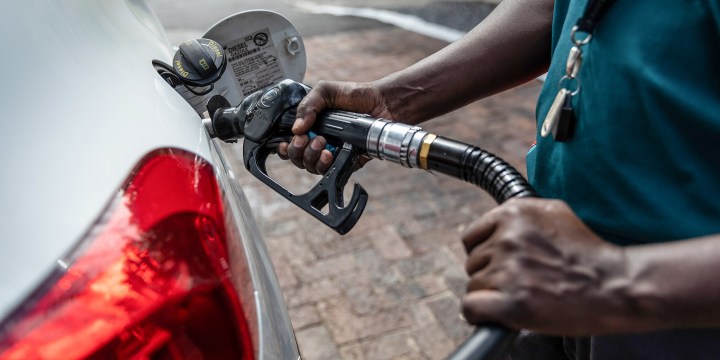UPWARD SPIRAL
Rising fuel price will have domino effect on cost of living, say experts

The cost of food, clothing and electronic goods is expected to rise shortly in response to the steep increase in the price of petrol and diesel.
As widely expected by economists, the fuel increases this month are steep, with petrol climbing by R1.71 a litre while the cost of diesel goes up by between R2.76 and R2.84 a litre. Experts say this will cause a domino effect, increasing consumer costs across the board.
The Automobile Association (AA) says the increases are largely driven by higher international oil prices which have risen on the back of slow demand and decreased output. Reuters reports that analysts expect Saudi Arabia, the world’s biggest oil exporter, to extend its voluntary output cut into October, keeping oil supply tight and prices high.
According to Central Energy Fund (CEF) data, higher international oil prices are contributing between 80% and 88% to the expected increases with the weaker rand/US dollar exchange rate contributing the rest.
“While the rand has weakened on average against the dollar in August, it’s not a major contributor to the expected increases. [Rather, that] falls squarely on rising international oil prices,” the AA says.
Both the AA and the labour federation Cosatu hailed the recently published Review of administered prices in South Africa: The petrol price, by two senior economists at the South African Reserve Bank. The document calls for:
- A review of the methodology for calculating retail margins;
- A reconsideration of proposals “to move the petrol price to a maximum (rather than regulated) price”;
- A review of the methodology of reviewing inland transport costs; and
- The updating of “several outdated elements of the basic fuel price calculation”.
The AA also notes that the report calls for a review of the viability of the Road Accident Fund (RAF) against alternative approaches, notably compulsory third-party insurance.
“While the issue of compulsory third-party insurance needs further, deeper discussion, we concur … that there is institutional failure at the RAF, and that the rising cost of the RAF levy means that the additional cost to petrol prices has rapidly eroded the cost benefit for drivers relative to mandatory private insurance,” the AA says.
The RAF levy currently accounts for R2.18 on every litre of petrol and diesel sold in South Africa, which brings in around R42-billion for the fund annually.
In a statement on Tuesday, Cosatu said it remained “puzzled by the government’s reluctance to release the research report on the feasibility of a fuel price cap in South Africa, and a comprehensive review of the fuel price regime with the intention of reducing the taxes which constitute 28% of the fuel price regime. This unfulfilled commitment was made by then minister for energy, Jeff Radebe in September 2019, and ministers for mineral resources and energy, and finance, Gwede Mantashe and Enoch Godongwana in April 2022.”
Gavin Kelly, the chief executive of the Road Freight Association, says these prices were last seen in June 2022, the first month in a five-month climb that saw diesel prices reach the lofty heights of R25.74 in November 2022.
Although road freight transporters use both petrol and diesel, diesel is the more commonly used fuel. Kelly warns that transporters will need to increase their pricing to cover the increased cost of diesel.
“While this sounds like a simple process, there will be transporters who will not be able to increase costs [because] they are either contractually bound or [would end up] just pricing themselves out of the market.”
Kelly says many members are complaining to the association as they will not be able to muster the guarantees required for purchasing fuel on credit. Customers often take up to 90 days to pay after the transport has been provided, which means that transporters have to carry the costs of fuel, driver wages, and other business costs for up to 90 days.
“Fuel breached the 50% mark in daily operating costs during the third quarter of the year. Now, as we head into the final months of 2023 — with this 3.6% increase — the sector is heading towards the 60% level seen during the last months of 2022. That’s a huge increase in cost to company and that cost will, in most cases, be borne by the consumer,” Kelly says, adding that the domino effect will be an increase in the cost of food, clothing and electronic goods. DM



















I no longer own or drive a car so the prices increases are moot. However, I’ll wager that when the fuel price drops, the overall forecast increases affecting the cost of living, will never come down to today’s COL costs.
No sh!t Sherlock